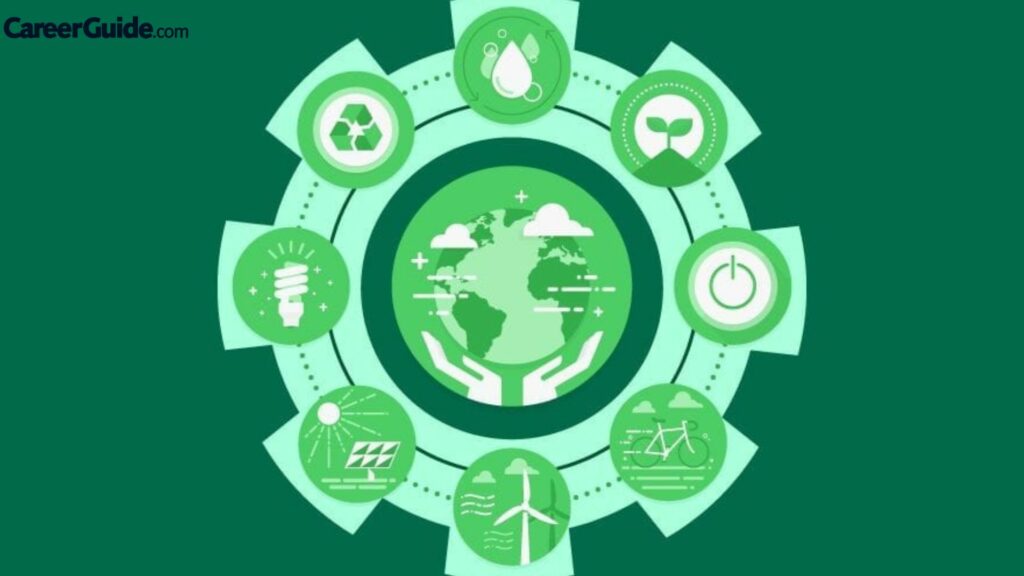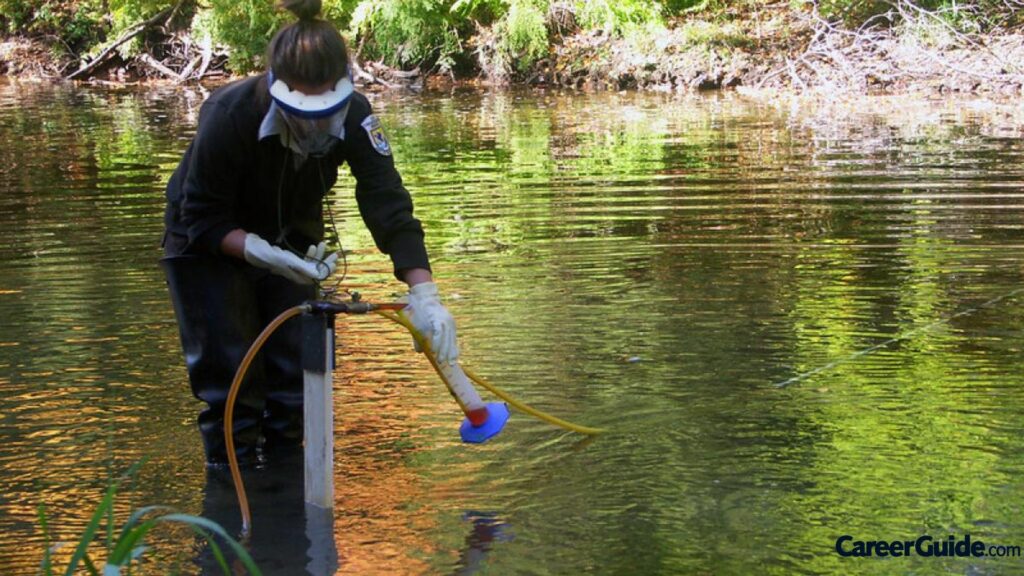Environmental engineering is a professional engineering discipline that takes from broad scientific topics like chemistry, biology, ecology, geology, hydraulics, hydrology, microbiology, and mathematics to create solutions that will protect and also improve the health of living organisms and improve the quality of the environment. Know more about Environmental Engineering. Environmental engineering is a sub-discipline of civil engineering, chemical engineering, and mechanical engineering. An environmental engineer is someone who uses the principles of engineering, soil science, biology, and chemistry to develop solutions to environmental problems. They are involved in efforts to improve recycling, waste disposal, public health, and control of water and air pollution. Here is the detail information about the concerned course:
About course
Environmental Engineering is a 4-year program. Environmental engineering is a multidisciplinary subject that borrows ideas from a number of different sciences as well as fields of engineering to understand environmental issues and engineer design solutions for these, for example, by creating a landfill or a wastewater plant. Typically, a program in this discipline will include concepts from physics, chemistry, and biology as well as civil, mechanical, electrical, and chemical engineering. Apart from this, students will also learn about impact assessment, environmental management, and audit. However, most modules will be geared towards developing a comprehensive understanding of different forms of pollution, managing environmental resources, and controlling waste. One can pursue M.Tech in Environmental Engineering after the successful completion of BE/B.Tech.
Subjects included in course

- Mathematics
- Probability and Statistics
- Mechanics of Fluids
- Organic Chemistry
- Biology
- Electric Circuits and Power
- Advanced Mathematics
- Mechanics of Materials
- Thermodynamics
- Properties of Materials
- Engineering Graphics and Design
- Hydrology and Municipal Hydraulics Engineering
- Geotechnical and Hydrogeological Engineering
- Water & Wastewater Engineering
- Air Quality and Pollution Control Engineering
- Industrial and Hazardous Waste Management
- Agricultural Waste Management
- Engineering Economics
- Engineering in Society – Health, Safety, and the Environment
What qualities you need to acquire to become environmental engineer?
- Imagination
Environmental engineers sometimes have to design systems that will be part of larger ones. They must foresee how the proposed designs will interact with components of the larger system, including the workers, machinery, and equipment, as well as with the environment.
- Interpersonal skills.
Environmental engineers must work with others toward a common goal. They usually work with engineers and scientists who design other systems and with the technicians and mechanics that put the designs into practice.
- Problem-solving skills.
When designing facilities and processes, environmental engineers strive to solve several issues at once, from workers’ safety to environmental protection. They must identify and anticipate problems in order to prevent losses for their employers, safeguard workers’ health, and mitigate environmental damage.
- Reading skills.
Environmental engineers often work with businesspeople, lawyers, and other professionals outside their field. They frequently are required to read and understand documents that deal with topics outside their scope of training.
- Writing skills.
Environmental engineers must write clearly so that others without their specific training can understand their documents, including plans, proposals, specifications, and findings, among others.
Top Institutes in India

B.Sc. in Environment Science can be pursued from:
B.E. in Environment Science can be pursued from:
M.E. and MTech are offered in:
Top universities abroad
Duties of environmental engineers

Environmental engineers typically do the following:
- Prepare, review, and update environmental investigation reports
- Design projects that lead to environmental protection, such as water reclamation facilities or air pollution control systems
- Obtain, update, and maintain plans, permits, and standard operating procedures
- Provide technical support for environmental remediation projects and for legal actions
- Analyze scientific data and do quality-control checks
- Monitor the progress of environmental improvement programs
- Inspect industrial and municipal facilities and programs in order to ensure compliance with environmental regulations
- Advise corporations and government agencies about procedures for cleaning up contaminated sites
Environmental engineers conduct hazardous-waste management studies in which they evaluate the significance of a hazard and advise on treating and containing it. They also design systems for municipal and industrial water supplies and industrial wastewater treatment and research the environmental impact of proposed construction projects. Environmental engineers in government develop regulations to prevent mishaps.
Top recruiting companies
- SPML Infra Limited
- Sima Labs Pvt Ltd.
- Kalpana Hydro Company
- Goodrich Corporation Brunel India Pvt Ltd
- Dresser-Rand India Pvt Ltd
- The Insure Private Limited
- Laboratories and universities/ colleges manufacturing and pharmaceutical companies
- Central Pollution Control Board
- AECOM
- Privi Organics Limited
- MACTEC
- UEM GROUP
Salary

Engineers working with State Pollution Control Board can get salaries ranging from Rs 15,000 to Rs 30,000. Candidates with M. Tech in environment engineering receive an attractive salary ranging from Rs 35,000 to Rs 50,000. However, doing research work in environmental engineering can be high paying as the professional earns a salary between Rs 50,000 and Rs 75,000. The median annual wage for environmental engineers is $88,860.













